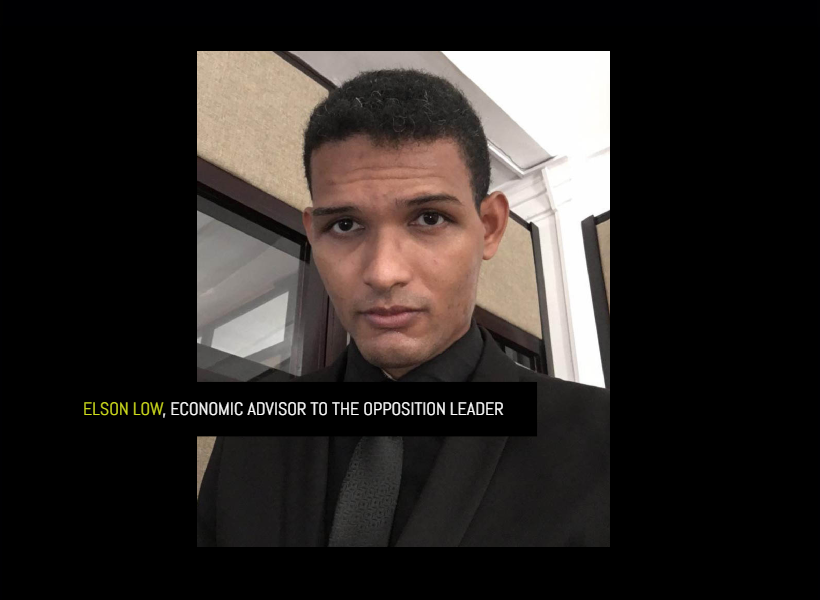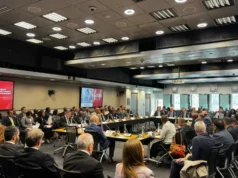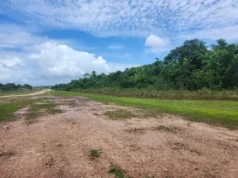It was on Tuesday that the Government of Guyana released the drafts for its new model Production Sharing Agreements (PSAs) which will govern the nation’s deepwater and shallow water concessions. It had also noted that the public has two weeks to send in suggestions for possible amendments. But the opposition does not agree with this timeline.
It is of the firm belief that such agreements which will set the tone for Guyana’s future oil deals are too important for a mere two weeks of public scrutiny. It therefore contends that the documents should be debated in the National Assembly before finalization.
The foregoing sentiments were specifically conveyed by the Opposition’s Economic and Youth Policy Advisor Elson Low, during a press conference yesterday.
Low remarked that after months of “relentless pressure” from the opposition, the government finally released two drafts with the expectation that Guyanese will give a proper review and lay their objections within just two weeks — a stunt similar to one that was pulled with the review of the Natural Resources Fund (NRF) Bill in 2021. “The PPP believes two weeks is sufficient for review, just as they believed two weeks was sufficient to review the Natural Resources Fund Bill in 2021. It would appear that the more money involved, the less the PPP wants Guyanese to see these documents,” Low accused.
He also believes that the new model PSAs could govern over USD$100 billion of oil revenues over the next few decades, which makes it even more important that Guyanese ensure they secure optimal benefits from their natural resources. Further to this statement, he accused the government of being a dictatorship and kleptocracy and called attention to Guyana’s recent suspension from the Extractive Industries Transparency Institute (EITI). Low believes that the suspension will hamper Guyanese from knowing who are the beneficial owners of the companies that will be awarded oil blocks, thus making room for more corruption.
The new model PSAs, one of which covers deep water concessions and the other presiding over shallow water blocks, are said to be a significant improvement from the Stabroek Block PSA, which featured many loopholes. The new PSAs provides Guyana with more benefits and oversight.
Some of the new provisions include an increased royalty from two percent to 10 percent in both deep and shallow blocks. The cost recovery ceiling which limits the amount of cost oil a company can recover was also lowered from 75 percent to 65 percent and oil companies, contractors, subcontractors and affiliated companies will be required to pay income tax following the Income Tax Act and Corporation Tax Act.
While the government boasts of these new benefits, the opposition still believes more time is needed to study the two draft PSAs to ensure Guyana gets the best deal.













